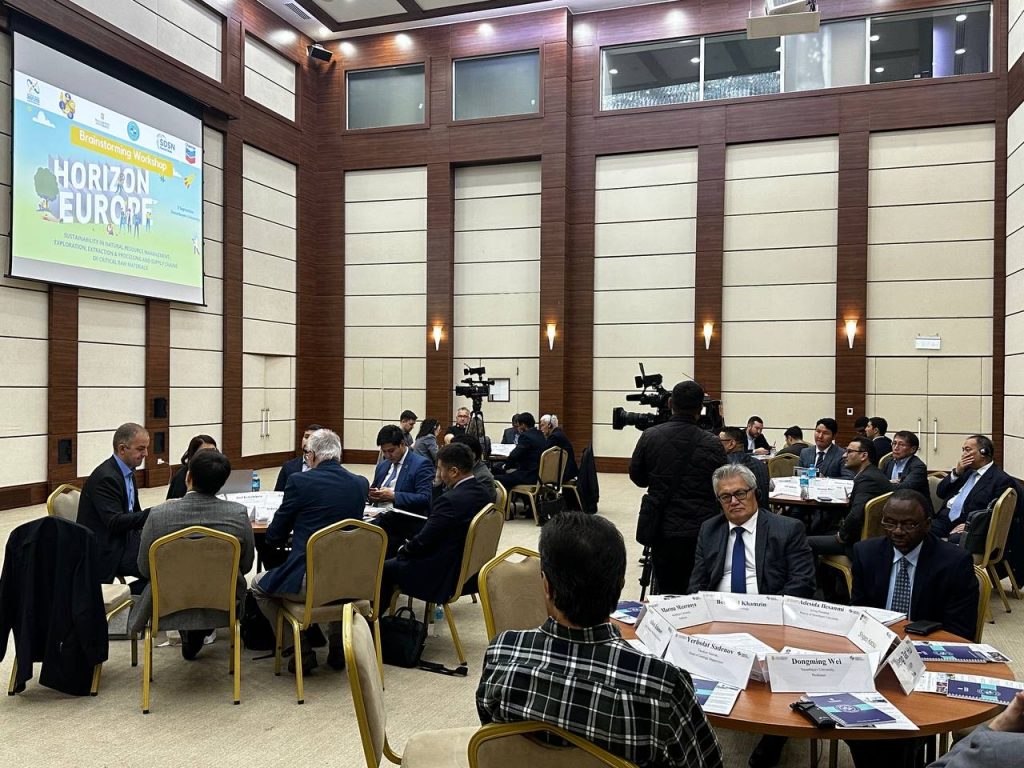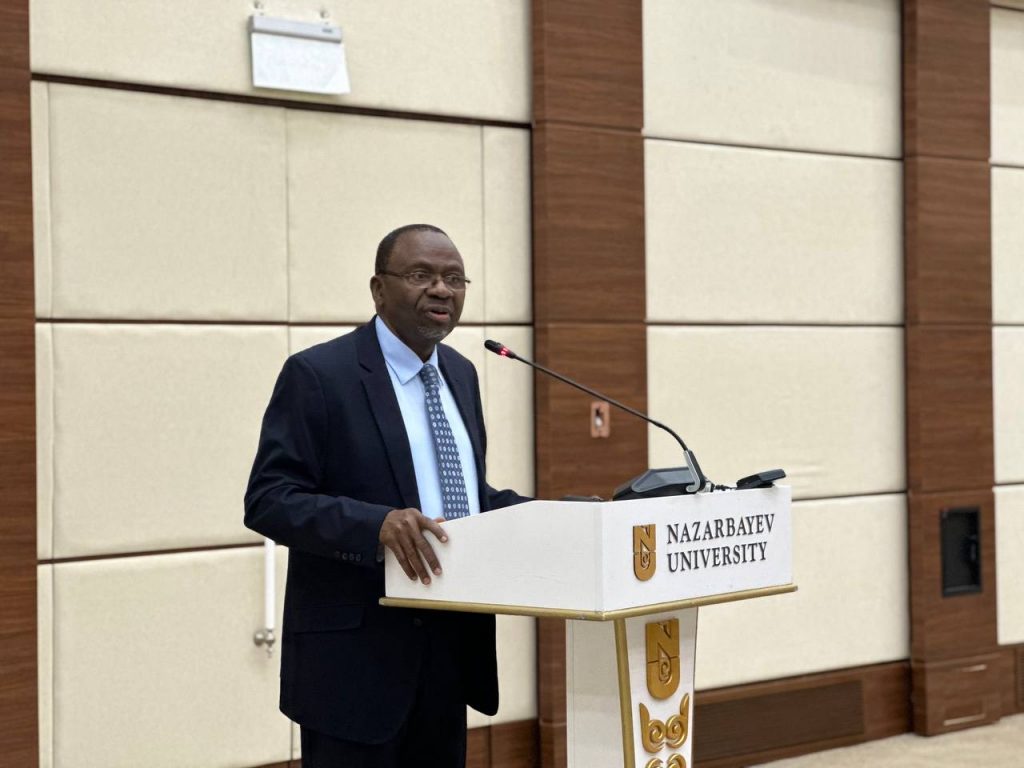The NU GSPP in partnership with SDSN Kazakhstan hosted the first workshop on Sustainable Management of Natural Resources
06.09.2023
Nazarbayev University Graduate School of Public Policy, in partnership with SDSN Kazakhstan, Science Foundation and the National Coordination Centre for Horizon Europe, organized the first workshop focusing on the challenges within the realm of exploration and mining of metals.
The main goal of this workshop, titled “Sustainability in Natural Resource Management: Exploration, Extraction & Processing, and Supply Chains of Critical Raw Materials” is to facilitate an open exchange of perspectives among stakeholders representing the raw materials industry, the scientific community, and political institutions. At the centre was the discussion about the current situation in the raw materials industry in Kazakhstan and the potential for its further development, with a particular emphasis on its role in advancing the green and digital transformation of the economy.
During his welcome address, Dr. Ilesanmi Adesida, the Acting President of Nazarbayev University, expressed gratitude to the seminar participants and highlighted the pivotal role of NU and partner universities in promoting sustainable educational and research practices in Kazakhstan.
“Kazakhstan sits in top of the periodic table, which is why the topic of today’s seminar on the sustainable management of natural resources is especially important, considering the need to develop the raw materials industry in line with the UN SDGs. One way we can contribute to the development and economic growth of Kazakhstan is through collaboration with our colleagues from other universities and students of Kazakhstan,” Dr. Adesida stated.

The seminar welcomed attendees from various organizations, including Kazakhstan’s Ministry of Science and Higher Education, Science Foundation, Center for International Programs, national companies such as KazAtomProm, Tau-Ken Samruk, Zhezkazgan Redmet, as well as representatives from academic and diplomatic circles, including the Delegation of the European Union in Kazakhstan, the German Ministry of Science, and the British Embassy in Kazakhstan.
The Chairperson of the Science Foundation, Abdilda Shamenov, delivered a speech, stating that “today’s gathering presents an exceptional opportunity for the exchange of ideas, experiences, and knowledge among European experts, Kazakh scientists, and enterprises operating in the exploration, production, and marketing of minerals. Thanks to the Horizon Europe program, Kazakh scientists have the chance to broaden their horizons and engage in innovative projects alongside their European counterparts.”

During the workshop experts from the industrial sector presented projects related to the development and extraction of rare metals, the transition to green energy, and other crucial topics. The discussions focused on three major challenges in raw materials mining in Kazakhstan: addressing due diligence requirements in raw material supply chains, exploring critical raw materials in deep land deposits, and developing technologies for the extraction and processing of critical raw materials.
“These three calls to action aim to mobilize scientists and stakeholders to engage and implement the previously signed MoUs. Otherwise, it’s just paper, but we want to achieve impact with research cooperation. This event today is an information event, we want to help the Kazakh side to understand the opportunity and jointly develop projects,” said Professor Reimar Seltmann, Head of the Centre for Russian and Central EurAsian Mineral Studies in UK’s Museum of Natural History.

Officially launched in June 2022 under the umbrella of the global SDSN, the Sustainable Development Solutions Network (SDSN) Kazakhstan is a part of the global initiative launched by the United Nations in 2012 to mobilize expertise and resources from academia, civil society, the private sector, and government to promote sustainable development. Kazakhstan’s office is hosted at the Graduate School of Public Policy in Nazarbayev University (NU GSPP), which also promotes the SDGs and the principles of sustainable development in its educational endeavors. For instance, 33.8% of all publications and research in Nazarbayev University is geared towards achieving the SDGs. During the workshop, Serik Orazgaliyev, an Associate Professor at Nazarbayev University and the coordinator for SDSN Kazakhstan, emphasized that such platforms facilitate dialogue between companies and members of the scientific community, serving to materialize the mutual interests of both parties.

Horizon Europe is the European Union’s key funding program for research and innovation with a budget of €95.5 billion. It tackles climate change, helps to achieve the UN’s Sustainable Development Goals and boosts the EU’s competitiveness and growth. The program facilitates collaboration and strengthens the impact of research and innovation in developing, supporting and implementing EU policies while tackling global challenges. It supports creating and better dispersing of excellent knowledge and technologies.

